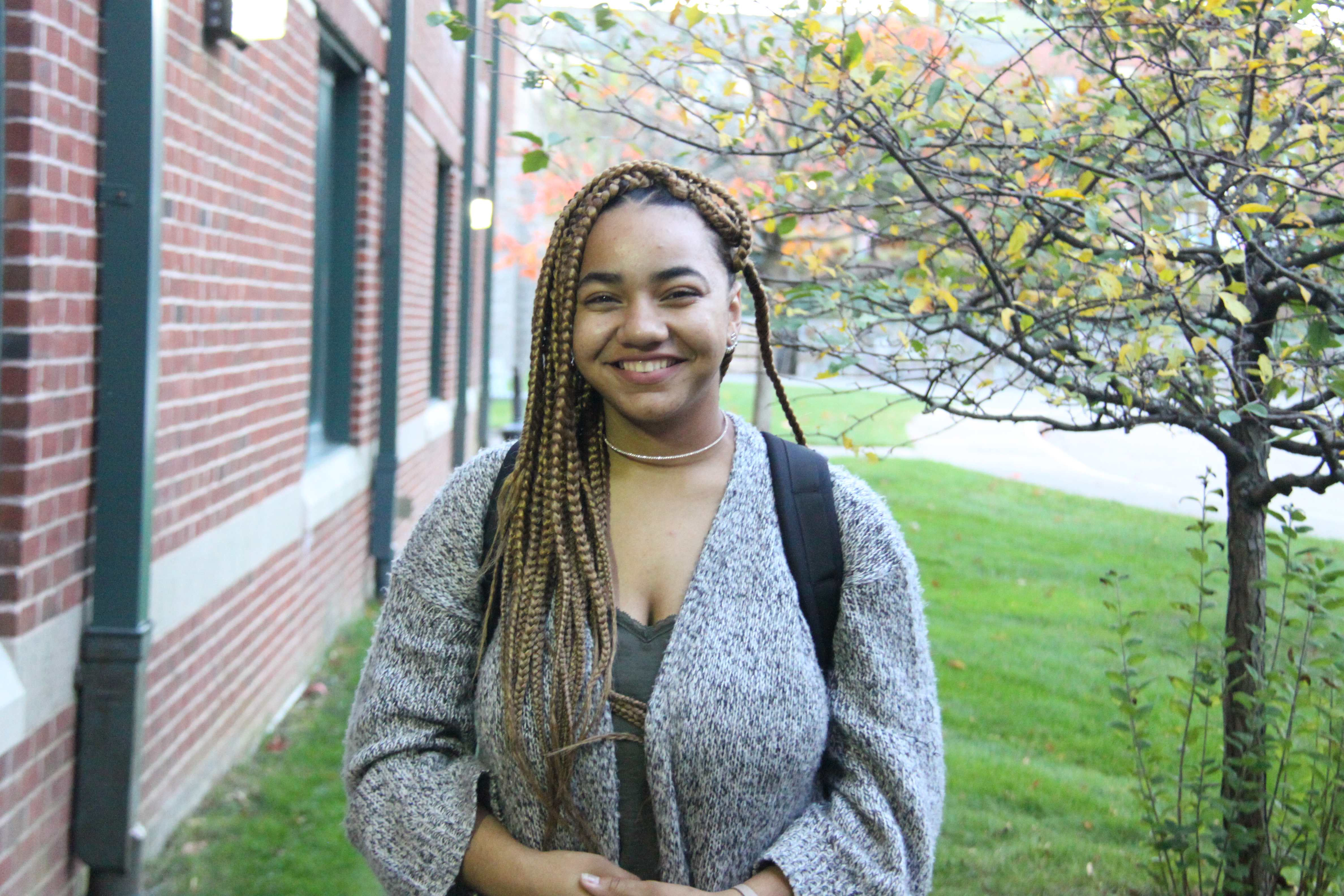
Sarah Schuyler, a junior at Endicott, and her son Asher play in their dorm room after class. (Kirk Carapezza/WGBH)
Twenty-three years ago, when Endicott College President Richard Wylie set out to subsidize room, board and childcare for single teenage mothers at this small, four-year private college in Beverly, Massachusetts, he met some resistance.
“One of my board members turned to me and he said, ‘Why would you do this? These are promiscuous women. These are people who have no values,’” Wylie recalled.
Wylie attempted to persuade the trustee at a dinner hosted by the college.
“I sat a single parent next to him,” Wylie said. “Halfway through the dinner he said, ‘Did you set me up for this?’ I said, ‘Well, sort of.’ At the end of it, he said, ‘This was a great decision.’”
What Endicott decided to do was admit ten low-income single mothers each year, providing them with housing, meals, and childcare. Today, Edicott's Keys to Degrees program costs the college about half a million dollars a year. It’s an expensive program for a school with a relatively small $65 million endowment, but Wylie says the school has a moral and professional obligation to help single parent students.
“We’re not here just to educate the brightest and the most privileged,” Wylie said. “If I can send my football team out of the country to play, why can’t we do more?”
College is usually an opportunity for students to get ahead and improve their lives. But that promise can lead to disappointment for low-income parents if they can’t find affordable, high-quality childcare. According to the Institute for the Women’s Policy Research, only 17 percent of college students with children graduate within six years.
To qualify for Endicott’s program, students must be between 18 and 24 years old and have only one child. Accepted students live together in dorm rooms designed to accommodate two parents and their children.
“That’s the best part,” said junior Isis Paterson, shortly after picking her son up from childcare. “You have people here with you who understand your situation.”

Isis Paterson says no other school she was accepted into could accommodate single parents. (Kirk Carapezza/WGBH)
Paterson was getting good grades at her high school in Brooklyn when she had her son. She was 15. When she decided to go to college, no other school she was accepted into could accommodate single parents.
“There are so many stigmas out there that once you become a student-parent, a young parent, a teen parent, your life is basically over,” Paterson said. “People shame you and you feel bad about it. But nobody looks at, ‘Okay, what can you do in the long run?’”
Paterson is majoring in public policy and she appreciates Endicott paying for adequate, accredited childcare while she attends class.
"It's very important that the cost is covered," Paterson said. "It eliminates barriers."
And the program is working. Its completion rate is 80 percent, which is better than the college as a whole.
A new poll from NPR, the Robert Wood Johnson Foundation and the Harvard T.H. Chan School of Public Health finds more than 70 percent of parents say the cost of childcare is a serious problem. And experts say that cost can prevent students with children from graduating.
"Childcare and taking care of your kids can be a major barrier in terms of completion," said Gina Adams, a senior fellow at the Urban Institute. Adams says more schools focusing on serving student parents could positively affect the economy, since most jobs created after the recession require more than a high school degree.
“Education absolutely is a route out of poverty for low-income parents and for their kids,” Adams said. “But if they have kids and we don’t provide them with the opportunities to make sure that their children are well cared for then they are unlikely to enroll or be able to succeed.”
So far, other schools including Eastern Michigan University and Portland State University have taken actions to create similar programs for student parents.
Endicott President Richard Wylie says the college doesn’t have the resources to expand the program, so he’s challenging other colleges and universities to do more.
“What you’re trying to do is get the young women to become college students again — to be in the theater, to be in the classroom, to do internships,” Wylie said. “They need special attention.”
Related: A New College Ranking Designed For Adults










